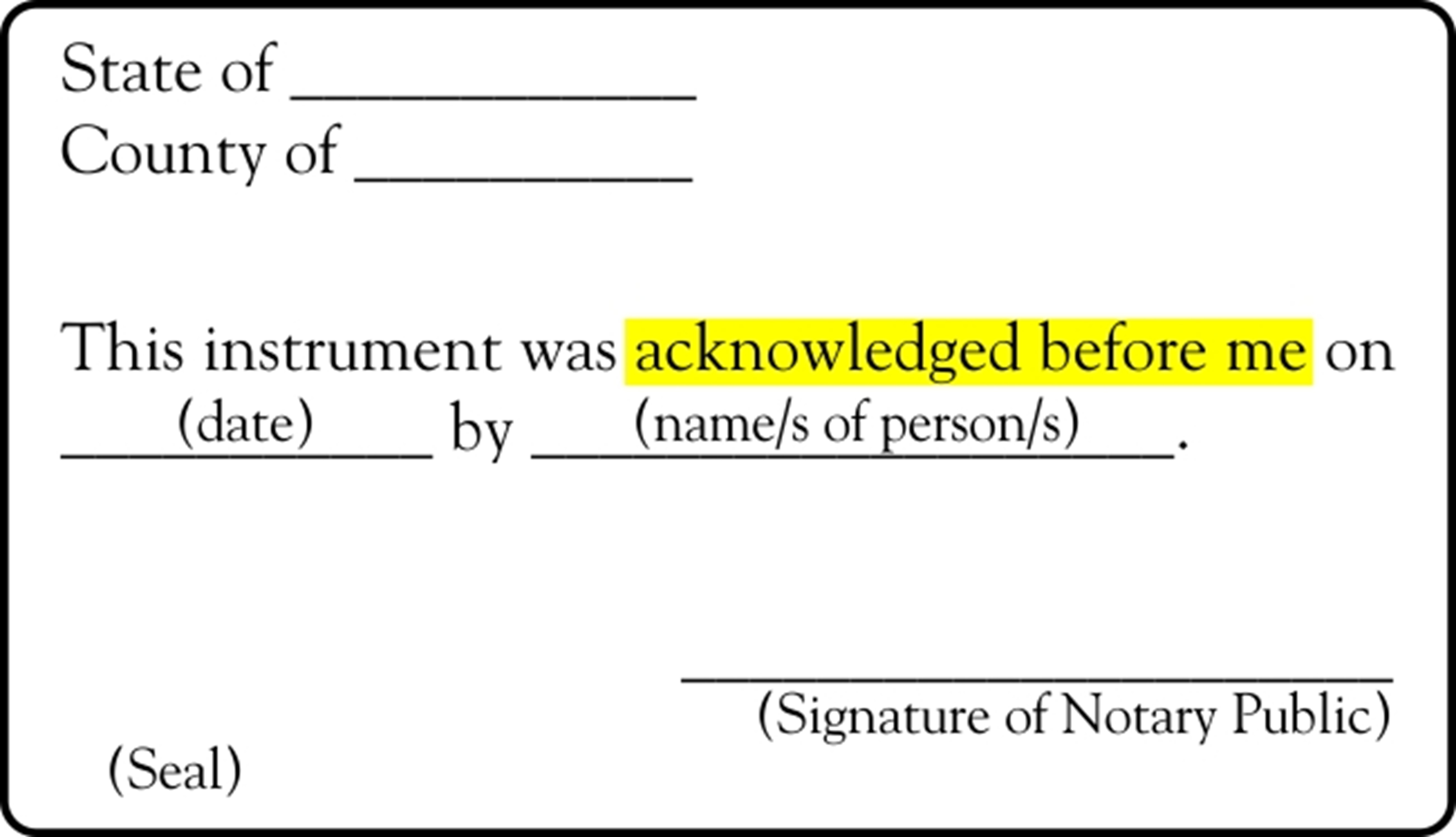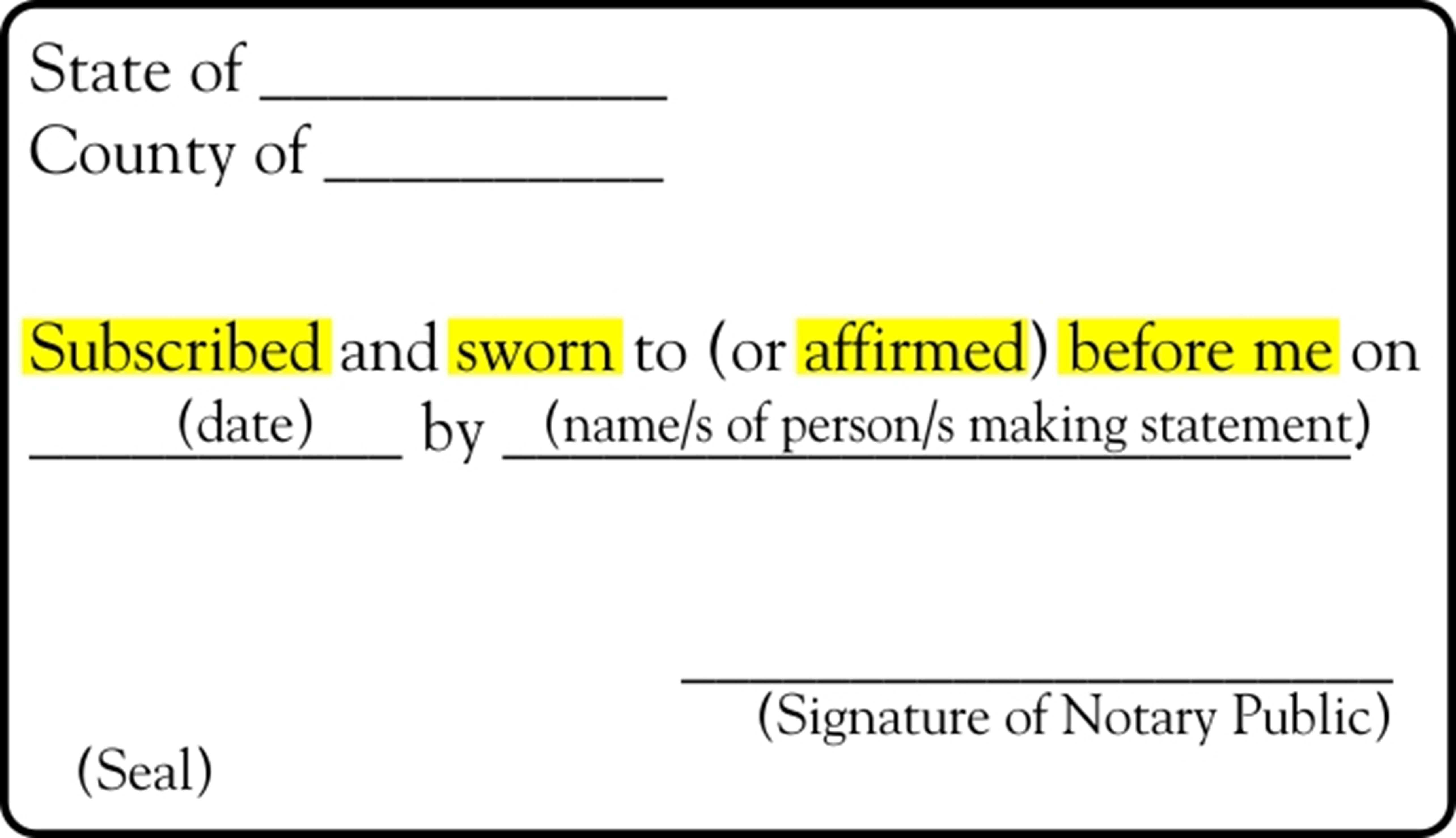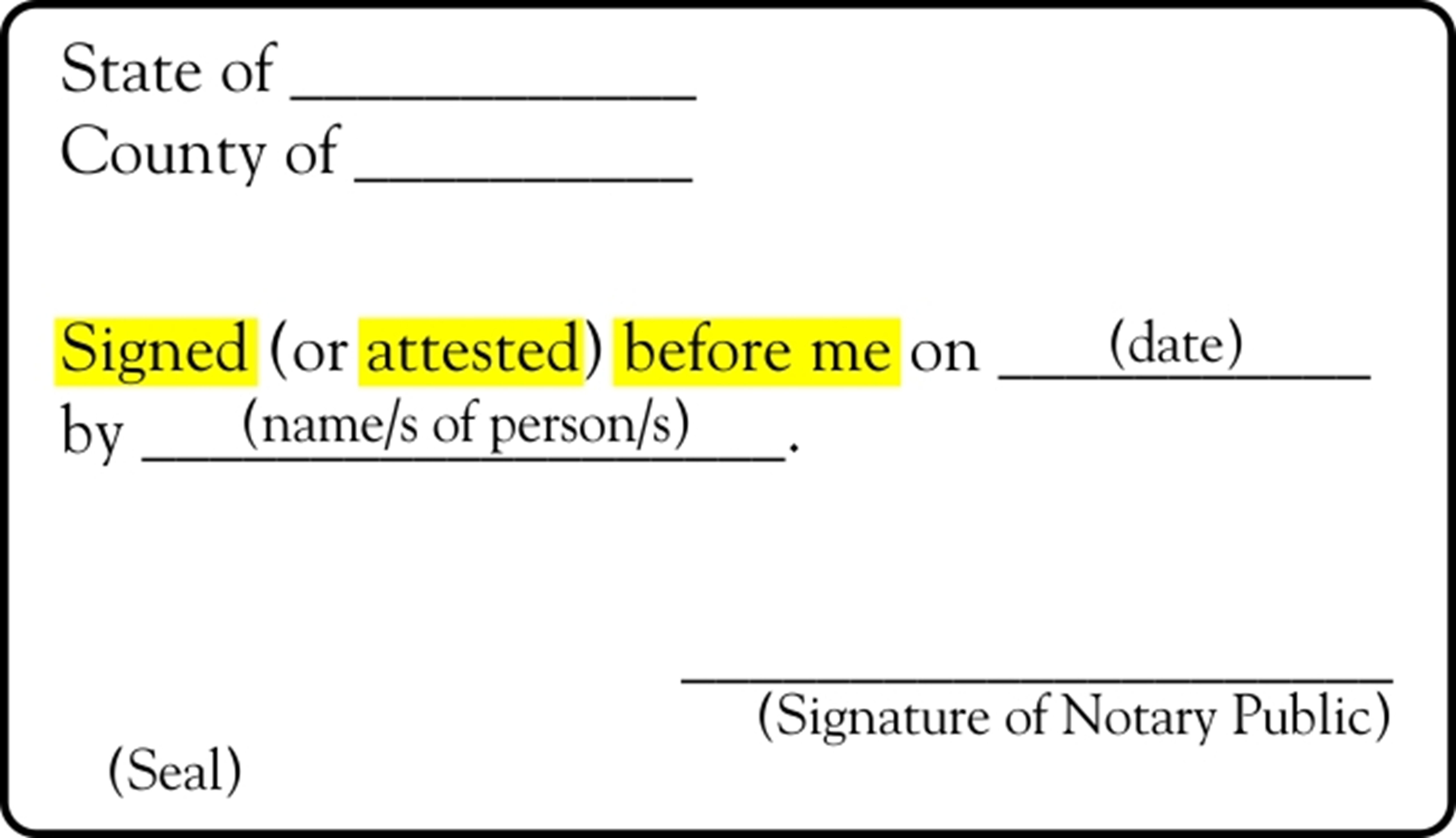Can You Notarize a Document that Has Already Been Signed?
We often hear from notaries asking whether they can notarize a document that was signed before the signer appeared in front of them.
The confusion often comes down to two things: (1) not knowing whether the notarization is an acknowledgment or a jurat and (2) not understanding which notarial act requires the notary to witness the signer actually sign the document.
Let’s break it down.
Not all notarial acts require you to observe the signing of the document
When you're completing an acknowledgment, you do not need to witness the person sign the document. An acknowledgment requires the signer to personally appear before you and acknowledge signing the document voluntarily. It doesn’t matter whether the individual signed the document minutes ago or several days earlier — as long as the signer appears in front of you and confirms signing the document for the purposes stated therein, you’re good to notarize.
An acknowledgement notarial certificate has the words “acknowledged before me” as in the example below:

Jurats require you to witness the signer sign the document
When you perform a jurat, the signer must sign the document in your presence, and you must administer an oath or affirmation. Jurats are commonly used for affidavits and other sworn statements. If the signer already signed the document prior to appearing before you, they must sign it again in your presence.
A jurat notarial certificate has the words “subscribed and sworn to (or affirmed) before me” as in the example below:

What about witnessing or attesting a signature?
Some states allow notaries to witness or attest a signature. In these cases, witnessing a signature means exactly what it sounds like — the signer must sign the document in your presence.
This is not the same as an acknowledgment. With an acknowledgment, the signer can sign the document ahead of time and then appear before you to confirm they willingly signed it.
Witnessing or attesting a signature is different from performing a jurat, which requires both witnessing the signing and administering an oath or affirmation. Witnessing or attesting a signature does not involve giving an oath or affirmation — it simply involves confirming that you saw the person sign.
Only a few states authorize this type of notarial act. Be sure to know your state’s notary laws.
The notarial certificate for this type of notarial act has the words “signed (or attested) before me” as in the example below:

What Every Notary Should Confirm First
Before performing a notarization, ask yourself the following:
- Is this an acknowledgment or a jurat?
Read the notarial certificate carefully — it will tell you which type of notarial act you're being asked to perform. - Is the signer required to sign in front of me?
Jurats and witnessing or attesting a signature notarial acts require this. Acknowledgments do not. - Has the signer appeared in person and been properly identified?
Verify the signer’s identity as allowed by your state’s notary laws. Just as importantly, make sure the individual is signing willingly and understands the consequences of signing the document.
Knowing the difference between notarial acts helps you make the right call and serve the public with confidence and accuracy.
Legal Disclaimer: The American Association of Notaries is committed to providing accurate and up-to-date information. However, it is important to note that the information provided on this page is for general informational purposes only and should not be relied upon as legal advice. We do not claim to be attorneys and do not guarantee the accuracy, completeness, or reliability of the information provided. It is your responsibility to know the appropriate notary laws governing your state. You should always seek the advice of a licensed attorney for any legal matters. In no event shall the American Association of Notaries, its employees, or contractors be liable to you for any claims, penalties, losses, damages, or expenses, howsoever arising, including, and without limitation, direct or indirect loss, or consequential loss, out of or in connection with the use of the information contained on any of the American Association of Notaries website pages. Notaries are advised to seek the advice of their state’s notary authorities or attorneys if they have legal questions.
-
Advertisement [8]
-
Affidavits [2]
-
Apostille [2]
-
Conflict of Interest [6]
-
Copy Certification [4]
-
Duties of a Notary [13]
-
Find a Notary - Notary Locator [1]
-
Foreign Language Documents [4]
-
Handling Difficult Notarization [10]
-
How to Become a Notary [19]
-
I-9 Forms [2]
-
Identifications [4]
-
Loan Signing Agent [5]
-
Maintaining Your Notary Commission [13]
-
Marketing [17]
-
Membership to Notary Association [3]
-
Mobile Notary [5]
-
Notarial Certificates [12]
-
Notary & Employer [6]
-
Notary Best Practices [83]
-
Notary Bonds [3]
-
Notary Commission [5]
-
Notary Courses - Online Course [1]
-
Notary Errors and Omissions Insurance [2]
-
Notary Fees [5]
-
Notary Fraud & Malpractice [3]
-
Notary Journals [13]
-
Notary Law Updates [23]
-
Notary News [3]
-
Notary Stamp and Supplies [40]
-
Practicing Law Without a License [14]
-
Privacy & Security [7]
-
Remote Online Notarization - (RONS) [4]
-
Steps to a Proper Notarization [82]
-
Taxes [4]
-
Website [2]
-
What Does a Notary Do? [22]
-
Wills [2]
- Read more
Notary bonds and errors and omissions insurance policies provided by this insurance agency, American Association of Notaries, Inc., are underwritten by Western Surety Company, Universal Surety of America, or Surety Bonding Company of America, which are subsidiaries of CNA Surety.